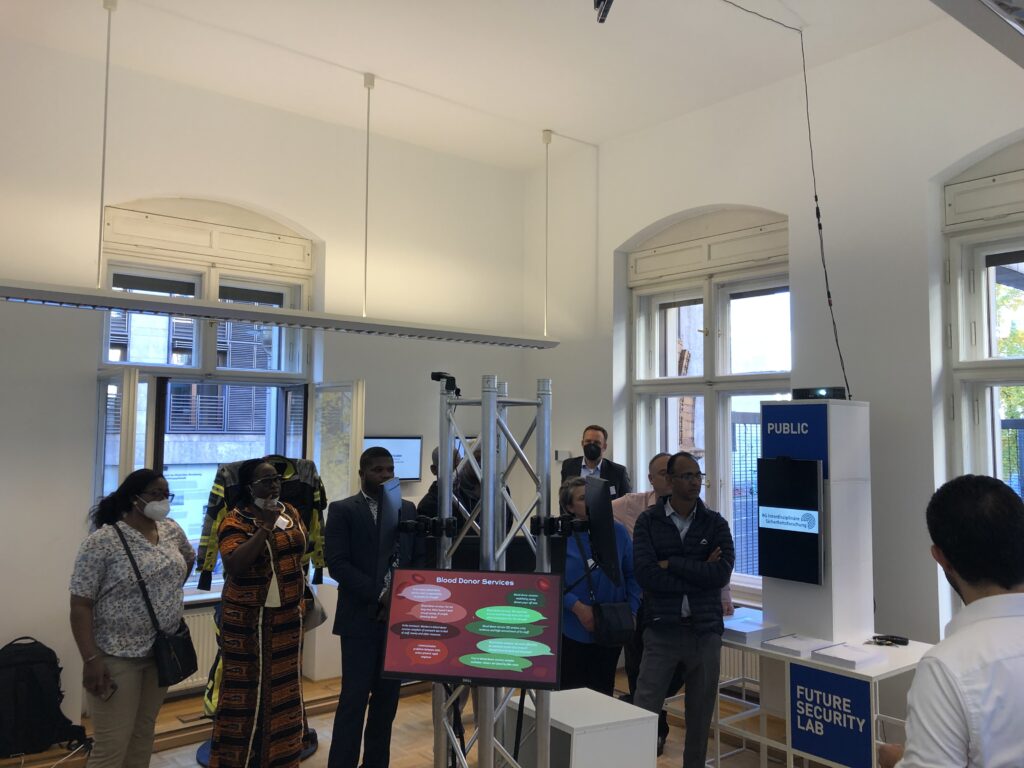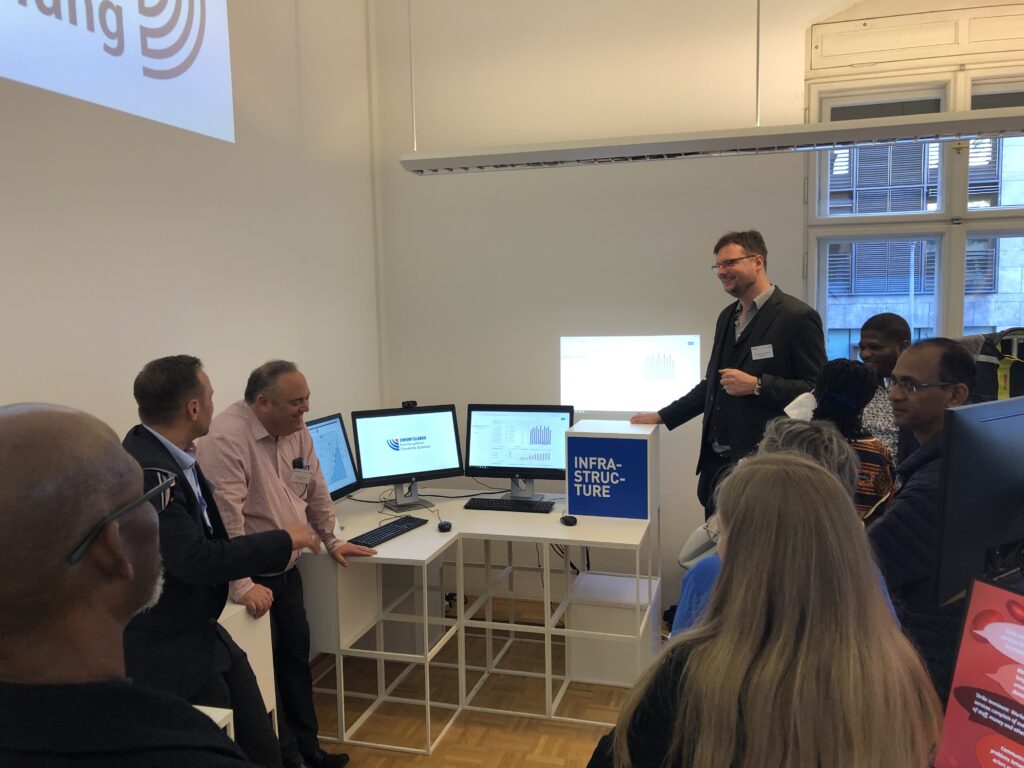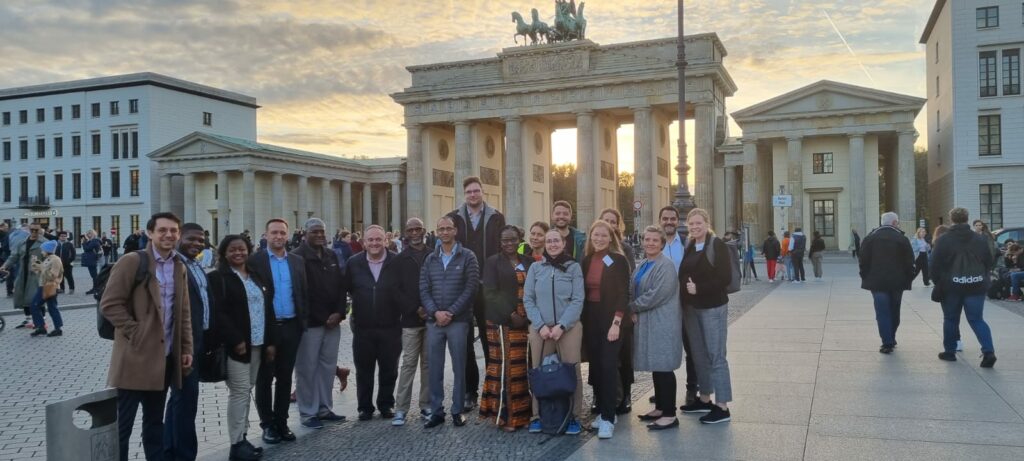During our two-day BISKIT workshop, we were thrilled to welcome and host participants from the NBSG, WCBS, SANBS, AfSBT, AUDA-NEPAD, and Wingcopter. With 20 participants, we were finally able to host an in-person workshop with all relevant BISKIT stakeholder in Berlin. The workshop was a great success in providing the BISKIT team with valuable input and feedback on the current status quo of the project. All participants greatly contributed to fruitful, constructive and interesting discussions around the BISKIT project.
The workshop started with a general introduction of the participants as well as the project framework and timeline. In a first session, Dr. Melanie Reuter-Oppermann (TUDA) and Dennis Horstkemper (WWU) presented their results on simulation and optimization in the blood supply chain. Moreover, a survey on decision problems in blood establishments was distributed in order to improve the current optimization models. After lunch, the group jointly used the public transport to get to the Einstein Center Digital Future, which incorporates the Future Security Lab hosted by FU Berlin. Miriam Nagels moderated the presentation of our BISKIT moduls in this impressive premises. Miriam Nagels started with the display of different crisis scenarios represented by newspaper headlines and its influences on the blood supply. After that, Adam Widera and Dennis Horstkemper (WWU) demonstrated different simulation runs for the models on Ghana and on South Africa. The presentations were designed to seek interaction with the possible endusers, so that the participants were able to experience BISKIT visually. Moreover, we could catch first glimpses on the chatbot solution of BISKIT by TUDA, which we would work with in more detail on the following day. Finally, Miriam Nagels administered a survey to rate the visualization of the BISKIT results within the setting of the Future Security Lab. The day was closed with a group photo in front of Berlin´s must-see Brandenburg Gate and a social event dinner with traditional German dishes at a brewery.
On day two, we intensified the work on the chatbot. Helena Müller (TUDA) demonstrated the chatbot to the audience. All participants had the chance to individually interact with the chatbot. Based on this experience, a survey on the use of the chatbot was administered and a focus discussion was encouraged to improve the chatbot. In a last content-wise slot, Rajen Soobramoney (SANBS) and Simon Thimmel (PEI) gave insights on different approaches to business continuity as PEI is providing crisis management plans that accompany the BISKIT Information System.
Lastly, we visited the DRK Nord-Ost in Berlin and toured through their facilites. The participants very much liked the opportunity to understand how the DRK operates and to find similarities as well as differences with their own organisation. Thank you very much for having us.



